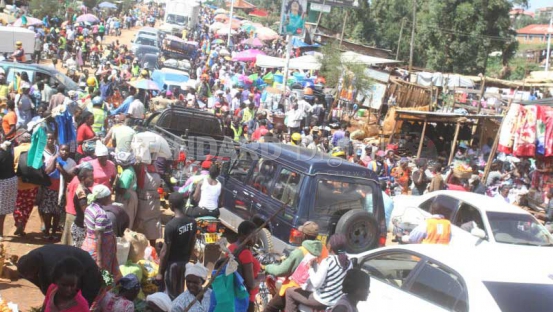×
The Standard e-Paper
Smart Minds Choose Us

A matatu screeches to a halt, missing two women traders by a whisker. They scream and curse but quickly return to their seats at Oile roadside market along Angawa Street in Kisumu town.
Dusk is quickly setting in and the makeshift market is full to capacity. Women, returning from work, flock here to buy vegetables and fish. To do a transaction, you stand right on the road because the market is itself part of the busy road.